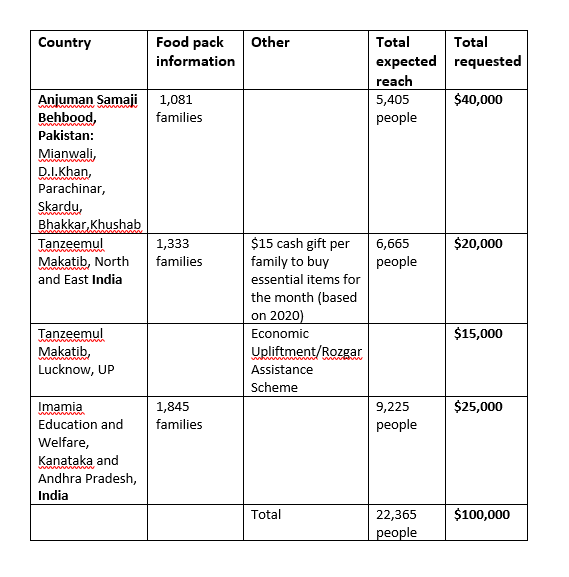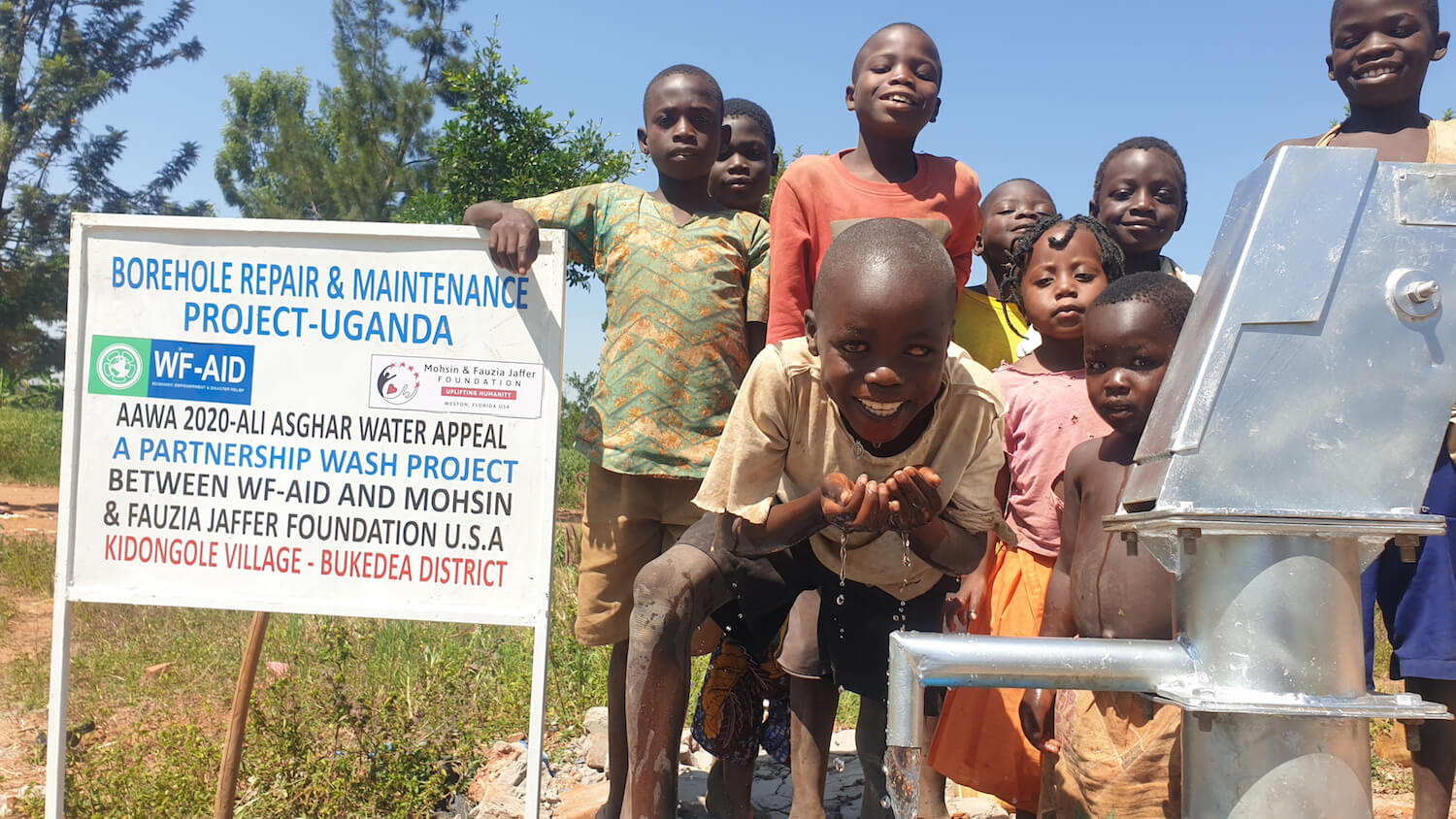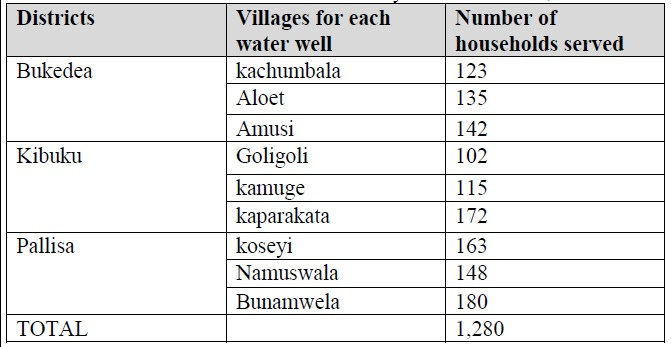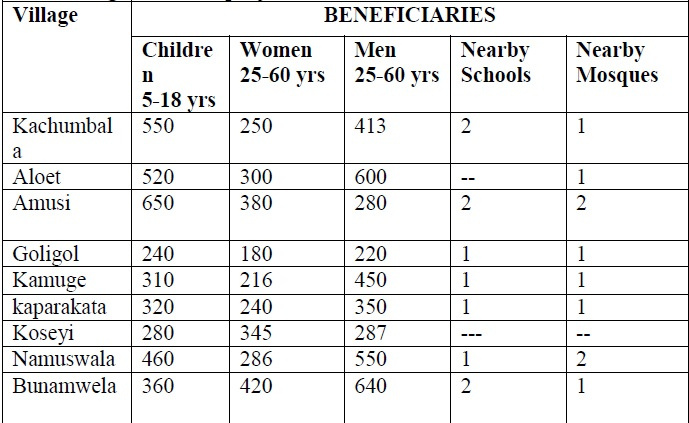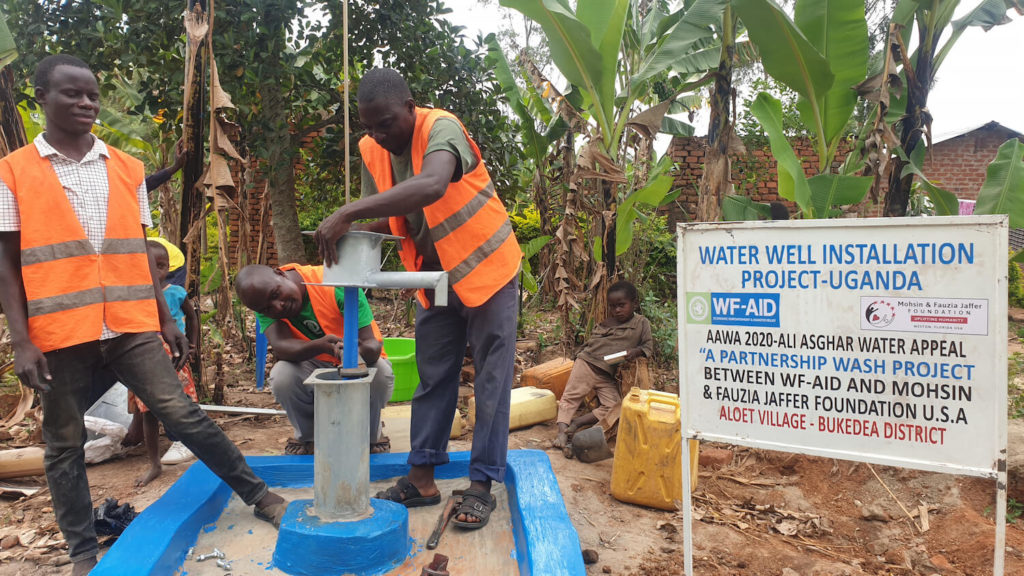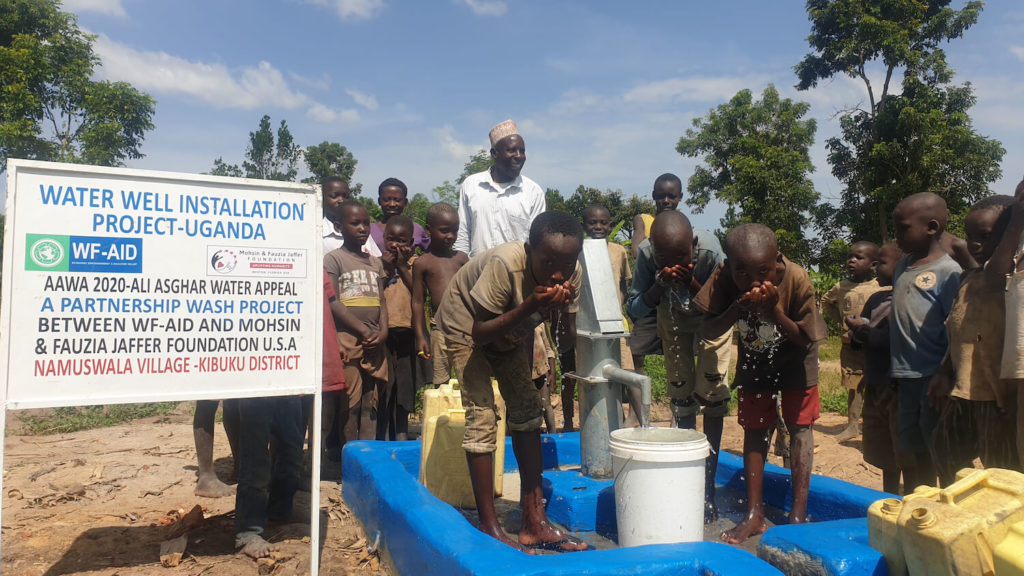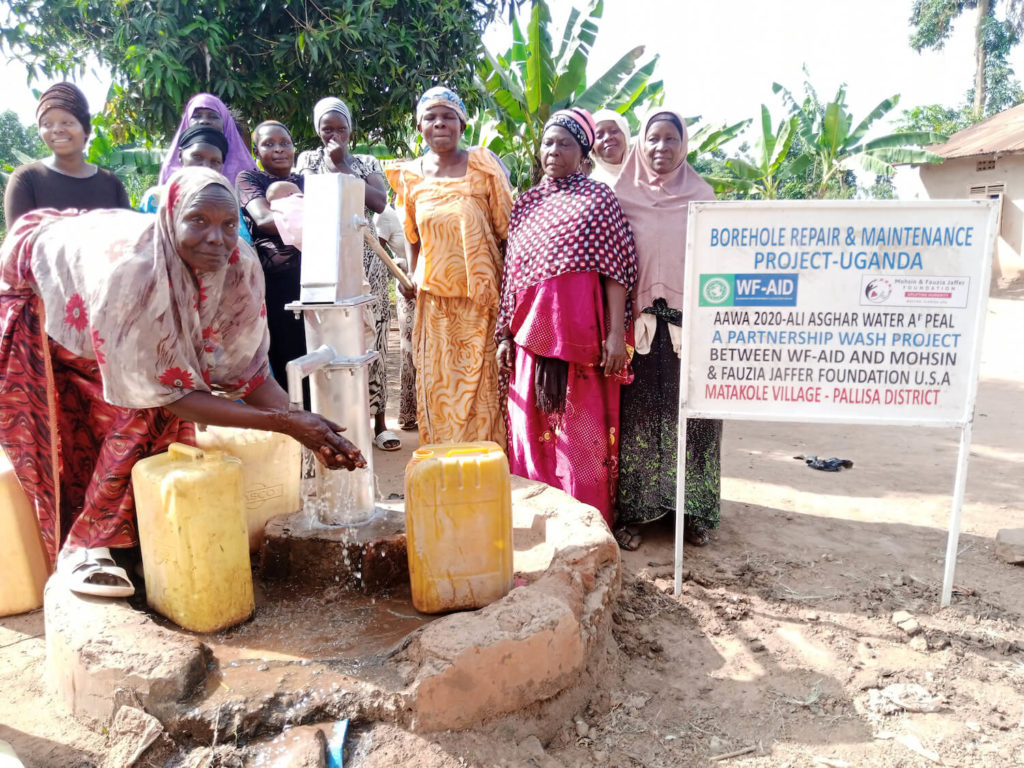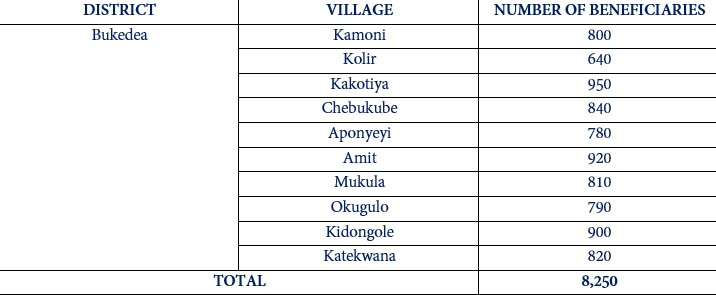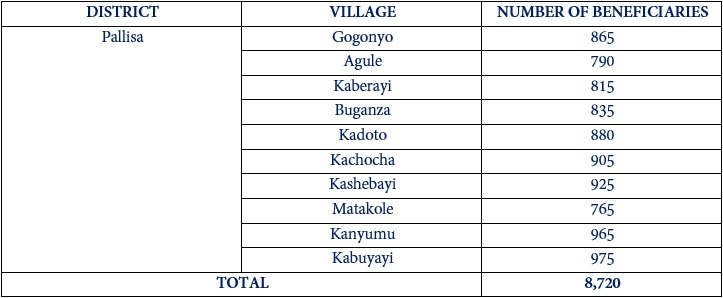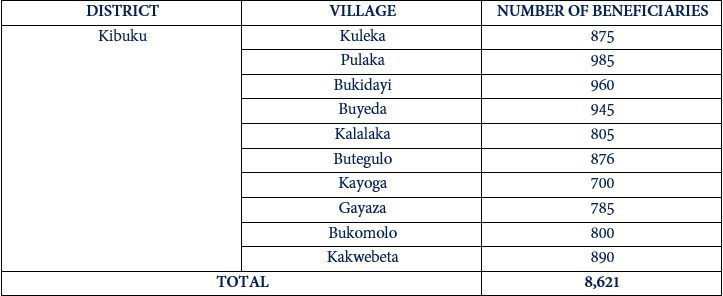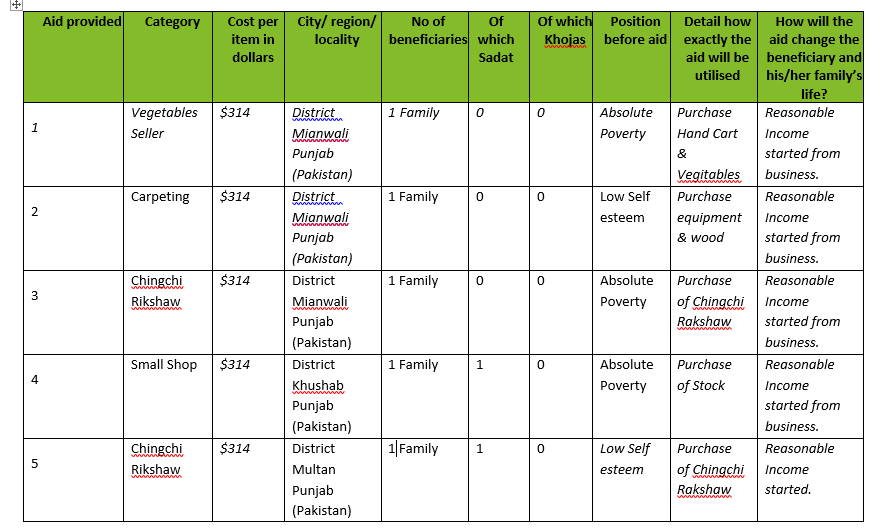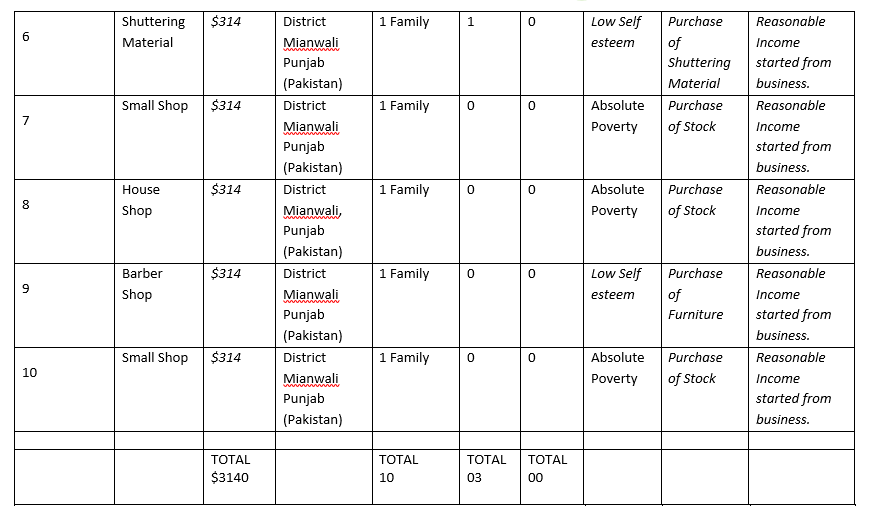WF-AID’s Ramadan Relief appeal works to help some of the families most in need around the world during the Holy month of Ramadan. We distribute food aid in several countries around the world, including Kenya, India, Pakistan, and Yemen.
Food packs give refugees and families a rare opportunity to receive essential nutritional aid, which can sometimes be the difference between life and death. With the coronavirus pandemic sweeping the world, the need for food this year was higher than ever. Food markets closed, prices increased, and people were unable to work. Families who rely on community iftars didn’t have that option due to lockdown.
We worked with our partners to ensure each distribution was done safely, with team members wearing full PPE and marking 2m spaces on the ground for the beneficiaries to stand. Each food pack we distributed contained locally sourced items, so your valuable donations not only helped those in immediate need but supported the local economy. As with every year, we made sure that each individual pack was filled with food that is tailored to the tastes and flavours of local diets. Last year, we included hand soaps and cleaning and hygiene products to help people during this pandemic.
Purpose
The purpose of the aid is to provide families in need with food and cash gifts to ensure they have meals to eat during the Holy month of Ramadan. It also helps to reduce the burden on families in this current climate where COVID-19 has meant millions of people around the world are without employment, therefore making it even harder to put food on the table. It furthermore works as an act of tableegh as it encourages families to focus on their fasting and ibadaat during this Holy month without the worry of how they will eat, therefore allowing communities to establish fasting and prayer as commanded by Allah SWT and the Ahlubayt (Alayhim us salam).
Who Will Benefit
The project will benefit needy children, adults and elderly across Pakistan, India, and Tanzania.
Anjuman Samaji Behbood
The charity started its activities with a profile of general welfare activities and have now branched out to several forms of charitable work such as installing WASH facilities, eye clinics, winter distributions, micro finance
projects and of course Ramadan distributions across several deprived areas such as Mianwali, Skardu and Parachinar.
Due to inflation, prices are increasing daily in Punjab and Pakistan as a whole and this is resulting in the poor becoming poorer. Unemployment is very high and in the villages there are many young people who do not have work and are therefore unable to support their families, more so now because of COVID-19.
Bilal Muslim Mission – Tanzania
Temeke District is one of the three districts of Dar es Salaam and has a historic significance for the Khoja Community as it is where the birth of Bilal Muslim Mission was envisioned by AFED in the 60’s.
As BMMT have been involved in community activities for many years their ground research has also established areas where the need differs to others. For example, the number of people per family differs from coastal and non coastal areas due to factors such as polygamy being more common and a high birth rate.
In coastal areas the number of people in one family may be up to 9 whereas non coastal maybe a maximum of 7. This then means the food ration quantity is amended to cover a larger family for one month.
Tanzeemul Makatib
Tanzeemul Makatib was established in 1968 with the aim of ‘upliftment & development’ of the depressed class within the society, especially the Indian Shia Muslim community by propagating education, guidance, awareness
and training. Since its establishment, Tanzeemul Makatib has been continuously dedicated towards providing education, raising social awareness, offering social counselling, training, and publishing & distributing text books & other teaching aids etc. contents etc.
to the community.
In addition to this, Tanzeemul Makatib distribute food packs and/or cash gifts to those they have identified as in desperate need for the Holy month and have done so for many years.
Imamia Education and Welfare
Established in 1989, Imamia Education and Welfare Trust has been dedicated to socio, economic, education and upliftment of the community. This has mainly been through religious and political classes and events but
also providing medical aid and scholarships. They have also been involved in the distribution of food during the month of Ramadan to several areas across Kanataka and Andhra Pradesh for many years.
Details of Provision
The families are provided with a variety of essentials to provide them with sehri and iftar over the Holy month and in some places, communal iftars will take place. Each food pack includes staple and nutritious items such as rice, flour, lentils, chick peas, dates, sugar and tea.
